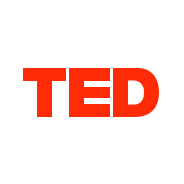The heart is one of the least regenerative organs in the human body -- a big factor in making heart failure the number one killer worldwide. What if we could help heart muscle regenerate after injury? Physician and scientist Chuck Murry shares his groundbreaking research into using stem cells to grow new heart cells -- an exciting step towards realizing the awesome promise of stem cells as medicine.

Wissenschaft & TechnikTalk
TED Talks Science and Medicine Folgen
Some of the world's greatest scientists, doctors and medical researchers share their discoveries and visions onstage at the TED conference, TEDx events and partner events around the world. You can also download these and many other videos free on TED.com, with an interactive English transcript and subtitles in up to 80 languages. TED is a nonprofit devoted to Ideas Worth Spreading.
Folgen von TED Talks Science and Medicine
136 Folgen
-
Folge vom 29.03.2019Can we regenerate heart muscle with stem cells? | Chuck Murry
-
Folge vom 27.03.2019To detect diseases earlier, let's speak bacteria's secret language | Fatima AlZahra'a AlatraktchiBacteria "talk" to each other, sending chemical information to coordinate attacks. What if we could listen to what they were saying? Nanophysicist Fatima AlZahra'a Alatraktchi invented a tool to spy on bacterial chatter and translate their secret communication into human language. Her work could pave the way for early diagnosis of disease -- before we even get sick.
-
Folge vom 20.03.2019Why bees hold the key to our future | Noah Wilson-RichBees are dying off in record numbers, but ecologist Noah Wilson-Rich is interested in something else: Where are bees healthy and thriving? To find out, he recruited citizen scientists across the US to set up beehives in their backyards, gardens and rooftops. Learn how these little data factories are changing what we know about the habitats bees need to thrive -- and keep our future food systems stable.
-
Folge vom 18.03.2019The secret to scientific discoveries? Making mistakes | Phil PlaitPhil Plait was on a Hubble Space Telescope team of astronomers who thought they may have captured the first direct photo of an exoplanet ever taken. But did the evidence actually support that? Follow along as Plait shows how science progresses -- through a robust amount of making and correcting errors. "The price of doing science is admitting when you're wrong, but the payoff is the best there is: knowledge and understanding," he says.
